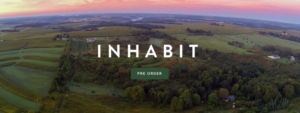PINE Board Retreat – February 2015 – from a new PINE member…
by Justin “Hood” Young, Swan Lake, NY (on right) The other week, I got lucky enough to find out about the PINE leadership retreat. I had heard of PINE before, but
by Justin “Hood” Young, Swan Lake, NY (on right) The other week, I got lucky enough to find out about the PINE leadership retreat. I had heard of PINE before, but
Greetings Northeast Permies! You’re invited to JOIN the Permaculture Institute of the Northeast to strengthen our Permaculture network and to increase community resilience throughout our region. Permaculture inspires and empowers thousands of people across the Northeast

We here at PINE are happy to share news of a project highlighting permaculture projects in our community… ‘Inhabit’ is a documentary film exploring the idea of conscience inhabitance through
by Jesse Watson This year’s Northeast Regional Permaculture Organizer’s Retreat held at Omega in Rhinebeck, NY was a nice mix of open space topics and work sessions focused on PINE action
by Justin Remus, New York, NY Our Omega plan was simple: Monica, my fiancee and budding permaculture star, would attend the regional workshops. I would hit the sauna, practice yoga
by Marisol Maddox – Hudson Valley, NY As a new member of the Northeast permaculture community I was grateful to have the experience of meeting other permaculture practitioners at the
http://www.eomega.org/workshops/conferences/where-we-go-from-here/join-us-for-a-free-public-talk-with-van-jones-social-justice-and-the-new-economy Blessed to be here at Omega, again, and sitting 10 feet from Vandana Shiva. A crowd of teens just left the stage – teens from Yonkers, NY, my parents’
“How can we support the growing interest in permaculture and what resources and tools are needed to support the network?”